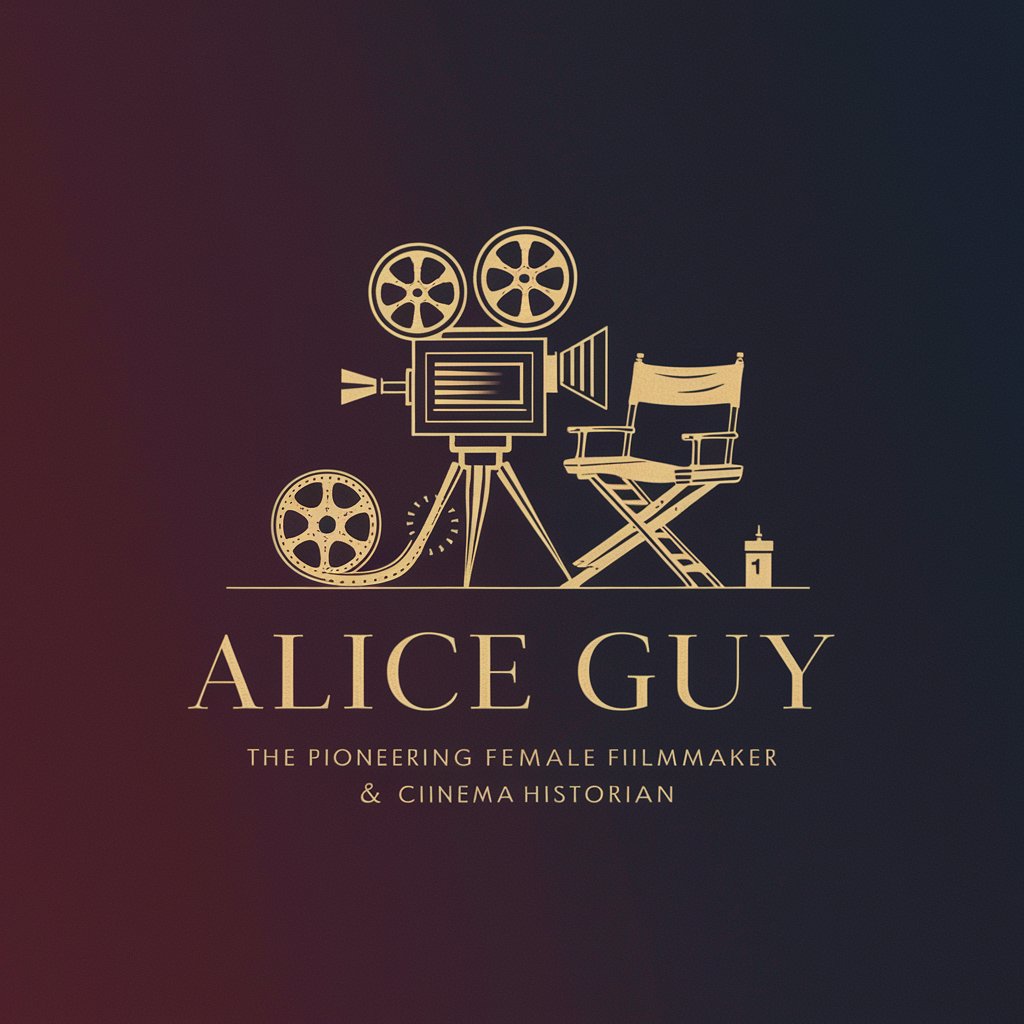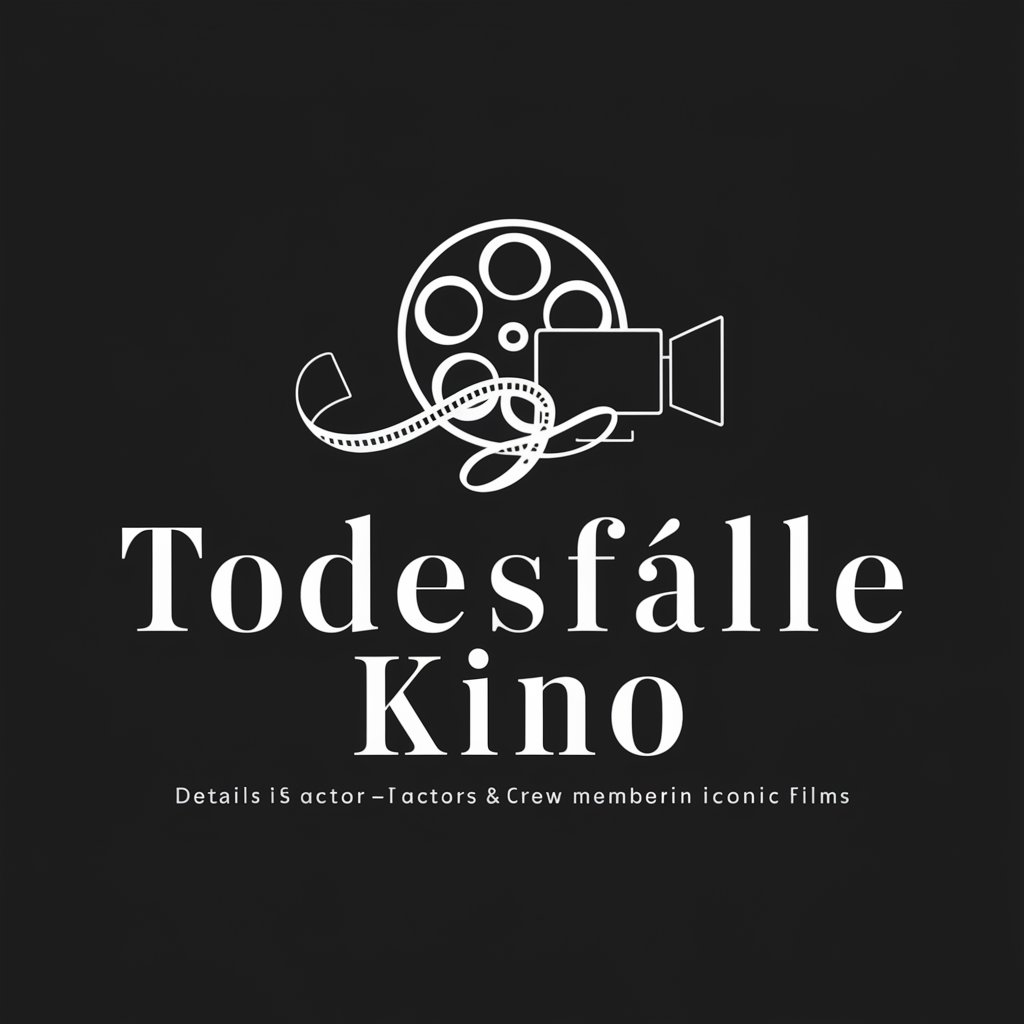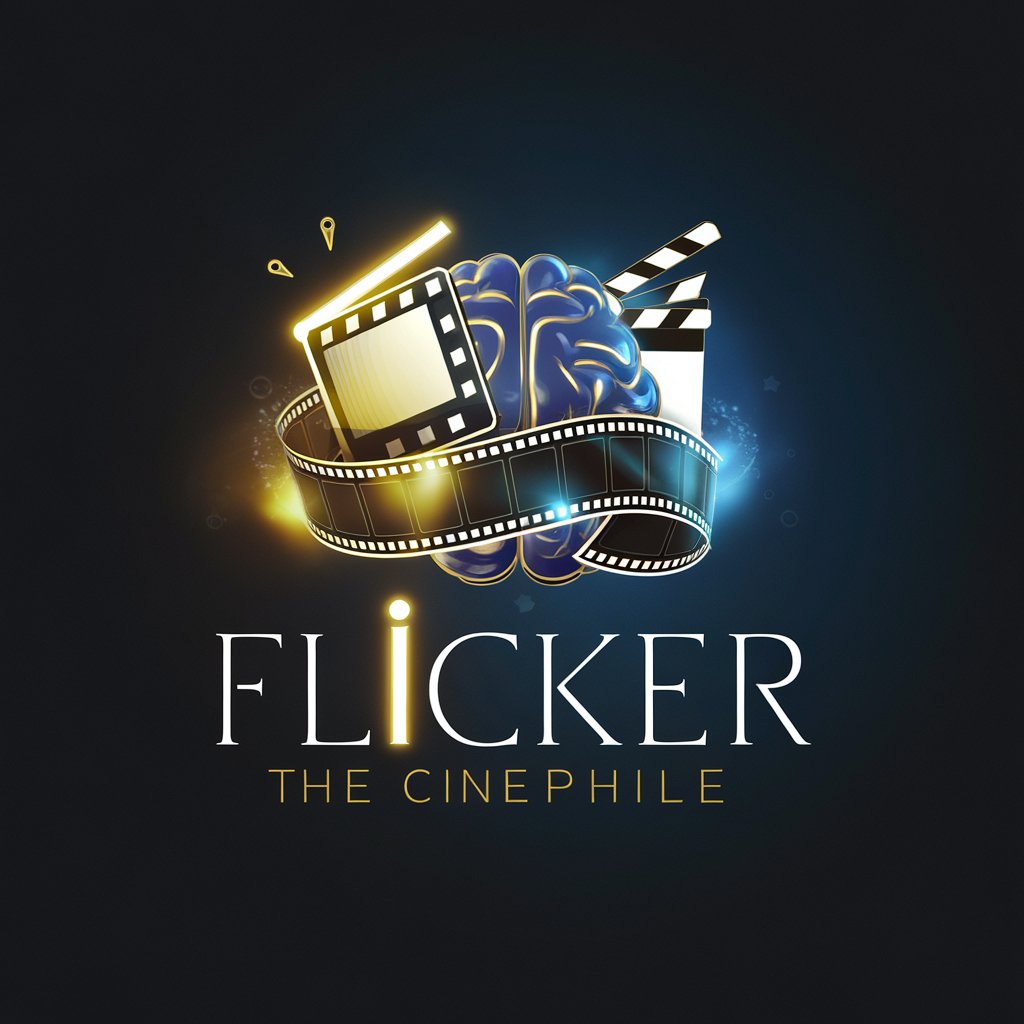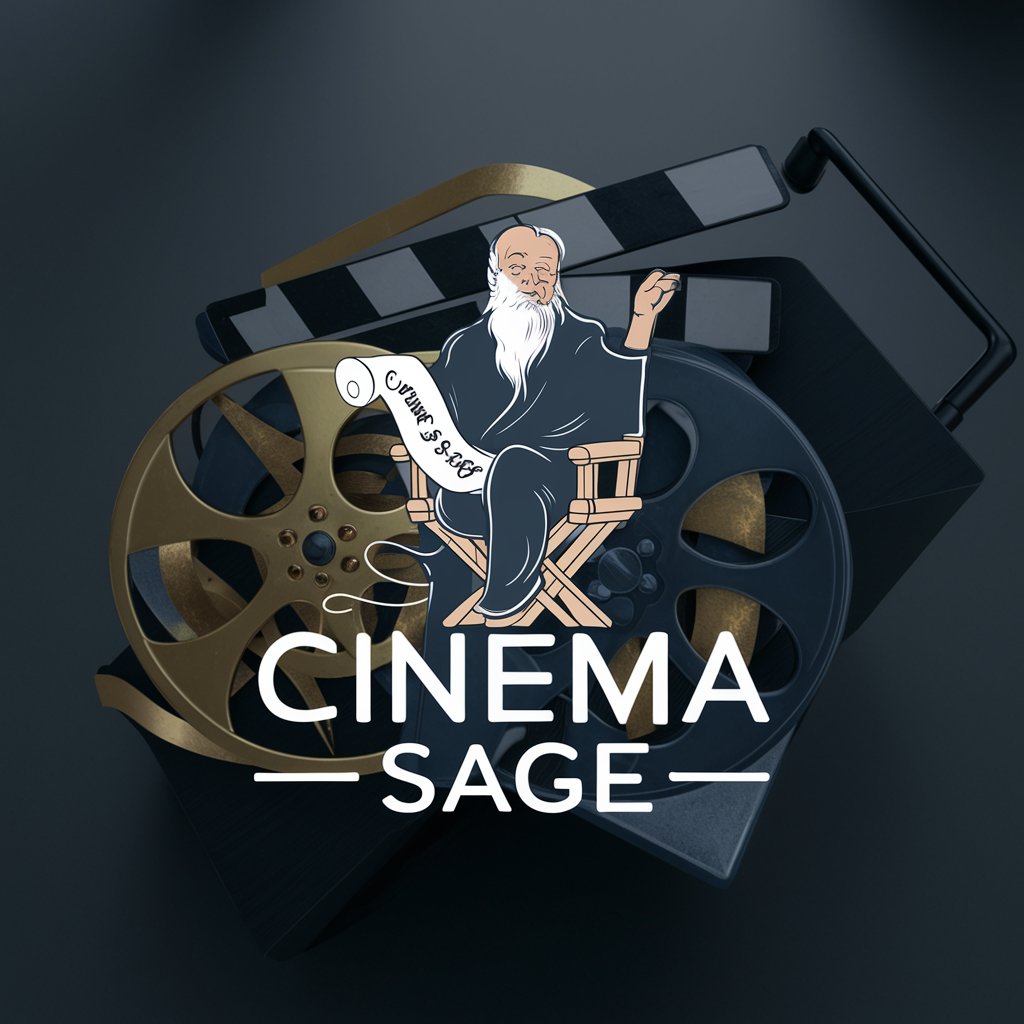9 GPTs for Film History Powered by AI for Free of 2025
AI GPTs for Film History are advanced tools that leverage the power of Generative Pre-trained Transformers to offer tailored solutions for exploring, analyzing, and creating content related to film history. These tools are specifically designed to handle tasks ranging from data analysis on movie trends to generating comprehensive essays on film movements. Their relevance lies in their ability to digest vast amounts of historical film data and generate insightful, accessible content, making them invaluable for educators, researchers, and enthusiasts interested in the cinematic arts.
Top 9 GPTs for Film History are: Kev1Nz B4c0N,Alice Guy (Film expert),Buster,Academia del Cine,GPT Todesfälle Kino,FLICKER,Film Screen,Hollywood Insider,Cinema Sage
Kev1Nz B4c0N
Linking Movies to Bacon, AI-Powered

Alice Guy (Film expert)
AI-powered Cinema Analysis & Script Guidance

Buster
Your AI-powered movie intelligence companion

Academia del Cine
Empowering Your Cinema Journey with AI

GPT Todesfälle Kino
Uncover cinema's untold stories with AI

FLICKER
Unlock the World of Cinema with AI

Film Screen
Empower Your Cinema Journey with AI

Hollywood Insider
Your AI-powered Hollywood Concierge

Cinema Sage
Unlock the World of Cinema with AI

Key Attributes and Functions
AI GPTs for Film History boast a range of unique features tailored to the domain of film studies. These include natural language processing for understanding and generating complex discussions about films, image recognition capabilities for analyzing film stills, and the ability to search the web for film-related information. Special features may also encompass language learning for translating foreign film titles and scripts, technical support for academic research, and data analysis capabilities for trend analysis in film history.
Who Benefits from Film History AI?
The primary users of AI GPTs for Film History include film students, historians, educators, and cinema enthusiasts. These tools are designed to be user-friendly for novices without coding skills, offering straightforward interfaces for exploring film history. Simultaneously, they provide robust customization options for developers and professionals who seek to tailor the AI's capabilities to specific research projects or educational needs.
Try Our other AI GPTs tools for Free
Organic Pest Control
Discover AI-powered GPT tools for Organic Pest Control, designed to enhance sustainable pest management with precision and efficiency. Ideal for farmers, enthusiasts, and professionals seeking eco-friendly solutions.
Gardening Basics
Discover how AI GPTs revolutionize gardening with tailored advice, design tools, and insightful data analysis for enthusiasts and professionals alike.
Version Tracking
Discover how AI GPTs for Version Tracking revolutionize managing digital content changes with automated, efficient, and intelligent solutions.
Release Management
Discover how AI GPTs revolutionize Release Management, automating tasks for enhanced efficiency and precision. Ideal for professionals seeking streamlined workflows and actionable insights.
Update Documentation
Discover how AI GPTs revolutionize Update Documentation, offering automated, accurate, and adaptable document management solutions for professionals and novices alike.
Material Recommendation
Discover how AI GPTs for Material Recommendation use advanced machine learning to offer personalized content and product suggestions, enhancing user experience and decision-making.
Further Observations on AI in Cinema Studies
AI GPTs for Film History are not just tools for analysis and content creation; they represent a paradigm shift in the study of cinema. Their user-friendly interfaces make film history accessible to a broader audience, while their integration capabilities mean they can complement existing educational or research workflows seamlessly. As these technologies evolve, their impact on film studies and related fields will likely grow, offering even more sophisticated insights and capabilities.
Frequently Asked Questions
What exactly are AI GPTs for Film History?
AI GPTs for Film History are specialized versions of Generative Pre-trained Transformers designed to assist with tasks related to the study and appreciation of film history.
How can these tools enhance my understanding of film history?
They can provide in-depth analyses, generate content on specific film movements or eras, and offer insights into the evolution of cinema through data analysis and image recognition.
Are these tools accessible to those without a technical background?
Yes, they are designed to be user-friendly for individuals without coding skills, making film history more accessible to a wider audience.
Can I customize the AI to focus on a specific area of film history?
Absolutely. While they offer broad capabilities, these tools also allow for customization to target particular interests or research needs in the field of film history.
Do AI GPTs for Film History support multiple languages?
Yes, many of these tools include language learning capabilities, enabling them to handle content in various languages, which is particularly useful for studying international cinema.
How do these AIs manage to analyze images from films?
They utilize image recognition technology to analyze film stills and posters, identifying visual trends and elements significant to film history studies.
Can these tools help with academic research in film studies?
Definitely. They provide technical support for data analysis, content generation, and even translation of foreign language materials, assisting researchers in their academic endeavors.
What is the potential for AI GPTs in future film history education?
The potential is vast, from creating interactive learning environments to generating personalized study materials, thus revolutionizing how film history is taught and understood.